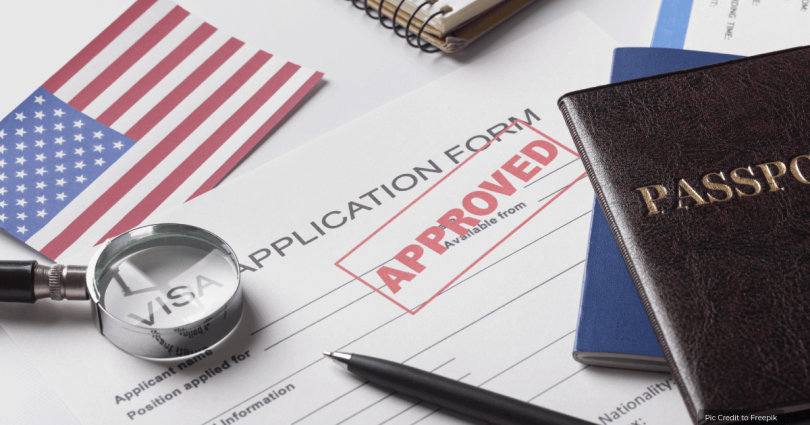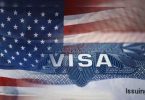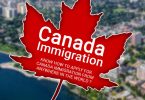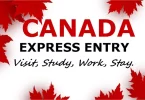The United States has historically served as a prominent choice for international students in pursuit of exceptional education, a wide range of academic prospects, and a comprehensive international learning encounter. In order to pursue higher education in the United States, international students often need to get a study visa specific to the country, commonly referred to as an F-1 or J-1 visa. This thorough essay aims to provide guidance on the process of acquiring a study visa for the United States. It will cover the eligibility requirements, application procedure, necessary documentation, and crucial recommendations for a successful application.
Types of US Study Visas
There are many categories of study visas available for those seeking to pursue academic endeavors in the United States. These visas are designed to accommodate different educational objectives and circumstances.
Prior to delving into the application procedure, it is vital to acquire a comprehensive understanding of the principal categories of study visas accessible to international students in the United States.
- The F-1 visa is often utilized by overseas students who are enrolled in academic degree programs or English language programs at authorized educational institutions in the United States. It facilitates the pursuit of both full-time academic engagement and certain professional undertakings.
- The J-1 visa is designated for those who are enrolled in exchange programs, including those that involve educational and cultural exchanges. The curriculum encompasses a diverse array of academic and non-academic offerings, generally necessitating a resident requirement in the home nation upon completion.
Eligibility criteria
In order to qualify for a student visa in the United States, it is necessary to fulfill certain predetermined requirements.
- Acceptance into a US Institution: In order to get admission to an educational institution in the United States, it is imperative that individuals possess a legitimate Form I-20 (for F-1 visa) or Form DS-2019 (for J-1 visa) issued by the respective US educational institution. This document serves as a confirmation of your enrollment status and provides information on your program specifics.
- It is important to have the financial resources to meet the financial obligations associated with tuition fees, living expenses, and other pertinent charges during the course of your studies in the United States.
- Requirement for Demonstrating Intent to Return: It is necessary to provide evidence of a domicile in one’s country of origin and a genuine intention to repatriate subsequent to the completion of academic pursuits in the United States. This aids in the establishment of one’s non-immigrant intention.
- English Language competence: It may be necessary for individuals to furnish evidence of their English language competence by means of standardized assessments such as TOEFL or IELTS, contingent upon the specific program and institutional prerequisites.
- Clean Criminal Record: It is imperative that individuals possess a criminal record devoid of any infractions and do not present any potential risks to the national security of the United States.
The process of applying for US Study Visa
1. Ensuring Enrollment at a United States Academic Institution
The initial stage in acquiring a study visa for the United States involves submitting an application and securing acceptance into an educational institution inside the country. It is important to verify that the educational institution have certification from the Student and Exchange Visitor Program (SEVP).
2. Obtain the Form I-20 or Form DS-2019.
Once an individual has been granted admission to an educational institution in the United States, they will be issued a Form I-20 (for F-1 visa) or a Form DS-2019 (for J-1 visa) by the university. These forms encompass crucial information pertaining to your program, encompassing facts such as the commencement date of the program and financial particulars.
3. Pay the SEVIS fee.
Prior to submitting an application for a study visa in the United States, it is mandatory to remit the SEVIS (Student and Exchange Visitor Information System) cost. The payment for this cost may be made through internet channels, and it is imperative to retain the receipt since it will be required for the visa interview.
4. Fill out the Online Visa Application Form (DS-160).
Please access the official website of the Consular Electronic Application Center (CEAC) operated by the United States Department of State in order to fulfill the necessary steps to complete the DS-160 form. This document gathers pertinent information on your history, including personal particulars and the objective of your visit.
5. Make payment for the Visa Application Fee
The payment of the non-refundable visa application fee is required, with the specific amount varying based on the kind of visa being applied for and the applicant’s nationality. The payment of the fee can be made either through an online platform or using a recognized payment method available in the individual’s country of residence.
6. Schedule a Visa Interview
After the payment of the visa application fee and the completion of the DS-160 form, it is necessary to arrange a visa interview at the United States embassy or consulate located in the individual’s country of origin. The duration of waiting periods for visa interviews may vary, therefore necessitating appropriate planning.
7. The collection of necessary documents is crucial.
In order to adequately prepare for your visa interview, it is important to collect the requisite documentation, which may encompass:
- A passport that remains valid for a minimum of six months beyond the expected duration of stay in the United States is required.
- The required documents for obtaining an F-1 visa include Form I-20, whereas for a J-1 visa, Form DS-2019 is necessary.
- Receipt for SEVIS Fee Payment.
- Receipt for Visa Application Fee.
- The DS-160 confirmation sheet, which includes a barcode, is a crucial document in the visa application process.
- Documentation demonstrating financial assistance, such as bank records, scholarship letters, or financial affidavits, serves as evidence to substantiate one’s financial capacity.
- Demonstration of affiliations with one’s nation of origin, encompassing familial connections, occupational engagements, property ownership, or other forms of personal obligations.
- The provision of passport-sized images that conform to the specifications outlined by the US visa photo standards.
- Scores on English language proficiency tests, if they are deemed necessary.
8. Participate in the Visa Interview
When attending your visa interview, it is important to ensure that you appear at the designated US embassy or consulate with all the necessary documentation. The interview serves as a platform for the consular official to evaluate both your eligibility and intents. It is essential to be adequately prepared for the forthcoming discussion.
- Please include information on the academic program and educational institution you have selected.
- Please outline your strategy for funding both your educational expenditures and living costs.
- The individual expresses their intention to repatriate to their nation of origin upon the completion of their academic pursuits.
- Have you had any prior travels to the United States?
9. The process of gathering biometric data
During some instances, it is possible for the United States embassy or consulate to gather biometric information, including fingerprints and a photographic image, as part of your visit. The aforementioned data serves the goal of enhancing security measures and facilitating identification processes.
10. The approval and denial of visa applications.
Following the interview, the consular official will assess and make a decision about the approval or denial of your visa application. Upon approval, your passport will be returned to you, bearing the US study visa affixed to one of its pages. The visa will include information on the specific category of visa, the permissible number of entries, and the period of one’s authorized stay.
Strategies for Achieving a Successful Application
- Commence the visa application procedure with ample lead time to provide for processing durations, visa interview scheduling, and any setbacks.
- It is important to adopt an approach of honesty and preparedness during an interview by responding to all queries with candor and providing precise and factual information. It is important to be prepared to articulate one’s academic aspirations, sources of financial support, and commitment to repatriation to one’s place of origin.
- Document Authentication: It is imperative to verify the authenticity and accuracy of any accompanying papers, ensuring that they faithfully depict the individual’s circumstances. The presence of inconsistent or false documents has the potential to result in the refusal of a visa application.
- Financial Planning: It is imperative to engage in meticulous financial planning to ensure the effective management of one’s monetary resources. Additionally, it is crucial to furnish compelling documentation that substantiates one’s capacity to meet the financial obligations associated with tuition fees and living expenditures.
- English Language Proficiency: In the event that it is necessary, it is advisable to take an English language proficiency examination in a timely manner and strive to reach or beyond the stipulated criteria set by the educational institution.
- It is important to retain a positive attitude when engaging in an interview, whereby one should exhibit confidence and civility. A cheerful attitude has the potential to create a favorable impression.
- It is important to acknowledge that the decision made by the consular official holds ultimate authority. In the event of a refusal of your application, it is permissible to submit a subsequent application. However, it is important to diligently attend to the underlying causes that led to the previous denial.
In conclusion, it can be inferred that the given information supports the notion that…
Pursuing education in the United States provides a transformative opportunity characterized by exceptional academic standards and a profound cultural immersion. Acquiring a student visa for the United States is an essential milestone in the pursuit of this aspiration. By adhering to the qualifying requirements, attentively completing the application procedure, and following the recommendations outlined in this article, individuals can enhance their prospects of a successful application for a study visa in the United States. Embrace the unique opportunity to pursue higher education in the United States, so gaining access to a multitude of academic and personal development prospects.






